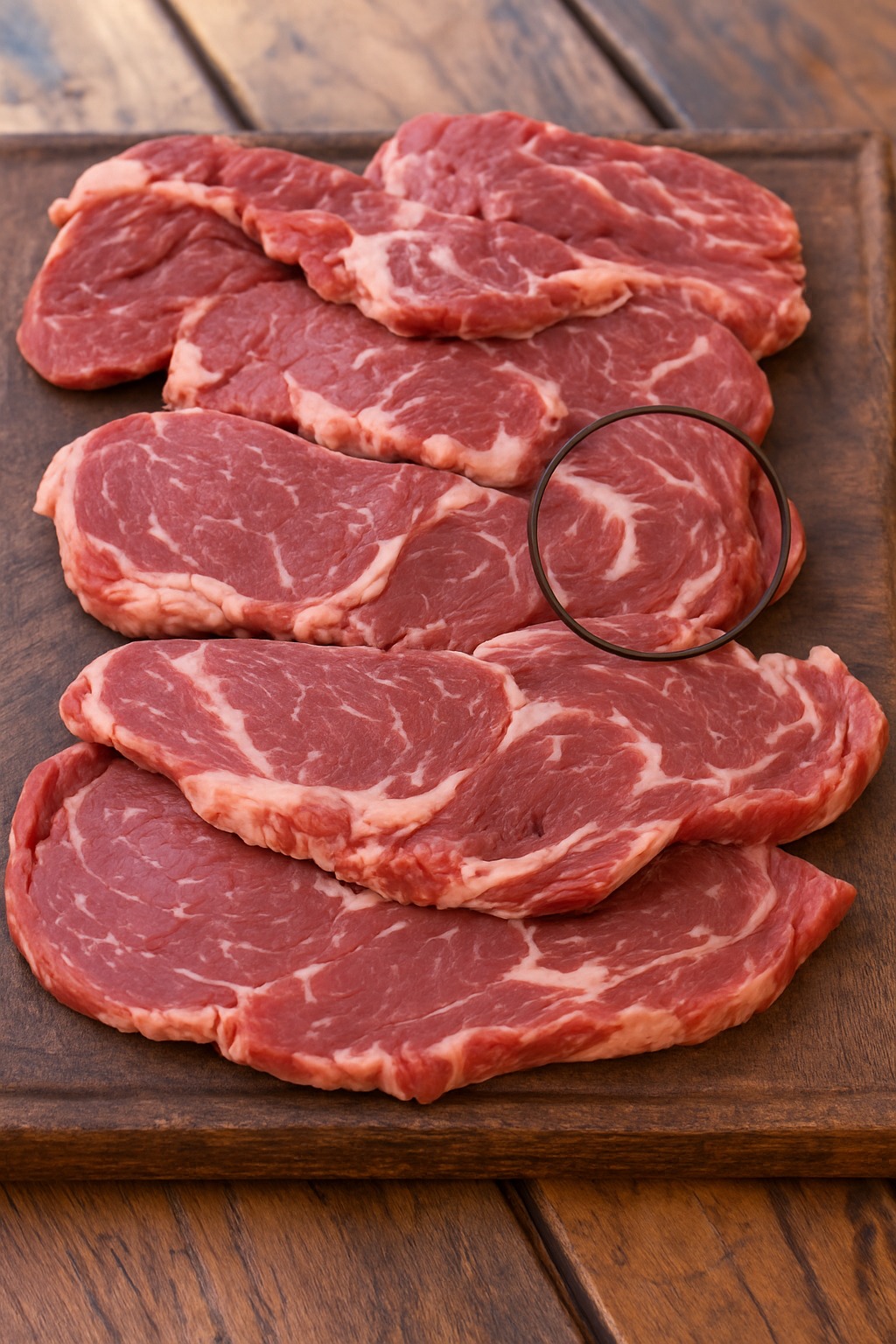5. Fat Distribution
Fat is a critical element in determining the flavor and tenderness of meat. When choosing cuts with fat marbling (the streaks of fat within the muscle), know that the finer the marbling, the more tender and flavorful the meat will be. Wagyu beef, for instance, is famous for its marbling and is known for its exceptional taste and tenderness. However, marbled meats tend to be more expensive.
6. Texture of the Meat
The texture of meat can tell you a lot about its quality. Beef should feel firm and dry with tightly packed muscle fibers that give it a dense structure. If the meat feels soft or like it might fall apart, it could be a sign of poor handling. The same goes for poultry: if it feels slimy or sticky, it’s best not to buy it. Consistency in texture is key for ensuring quality.
7. The Sell-By Date
While “best before” dates focus more on the quality of the meat rather than its safety, it’s still important to buy meat with the latest possible date. This gives you a few extra days to cook or freeze it. Although you can consume meat past this date, you’ll need to use your judgment on whether it’s still fresh.
8. The Use-By Date
The use-by date is far more critical than the sell-by date. It tells you when the meat will begin to spoil, and you should consume it by this date at the latest. After the use-by date has passed, the risk of consuming spoiled meat increases significantly. Ground meat is especially prone to spoilage due to its increased surface area and the handling it undergoes.
9. Inspect the Packaging
Check the packaging carefully for any damage or signs of contamination. While packaging issues might not directly affect the meat’s quality, they can indicate how well the meat was handled. If the packaging is dirty or damaged, it’s possible that the meat was exposed to harmful conditions, which could lead to spoilage.
10. Proper Storage at the Store
It’s not just about the meat itself — how it’s stored in the store matters too. If the temperature in the fridge or freezer section seems higher than normal or if water is leaking from freezers, it could mean the meat isn’t being stored properly. This can result in meat that’s less fresh or even spoiled, so always pay attention to the store’s storage conditions.
11. Ask the Butcher for Advice
Your butcher is your best resource when shopping for fresh meat. Don’t hesitate to ask them questions about the freshest cuts available, how to prepare certain meats, or even what to buy for your specific dish. Butchers are also happy to offer advice on cooking methods and may even provide discounts if you buy in bulk.

